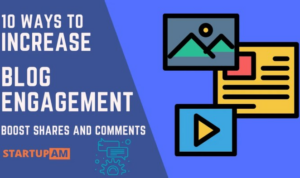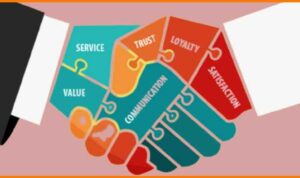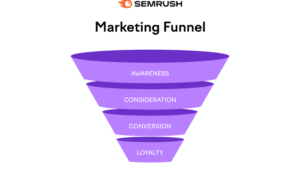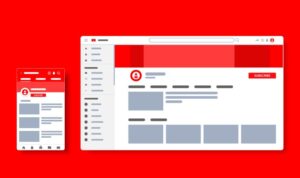SEO for Beginners – for Beginners introduces you to the key concepts of optimizing your online presence to boost visibility and reach your target audience. Dive into the realm of search engine optimization and unlock the secrets to climbing the ranks in search results.
From understanding the basics of to mastering on-page and off-page strategies, this guide will equip you with the knowledge needed to enhance your website’s performance and attract more traffic.
What is ?
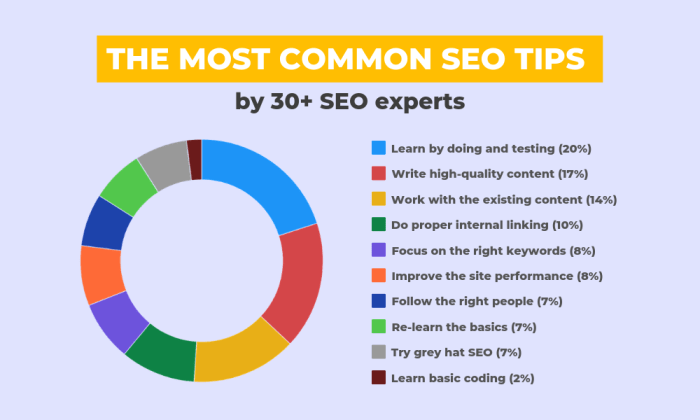
, or Search Engine Optimization, is the practice of optimizing a website to increase its visibility in search engine results. It involves various strategies and techniques to improve a site’s ranking on search engine results pages (SERPs).
Importance of for Websites
is crucial for websites because it helps them attract more organic traffic, increase brand awareness, and reach a larger audience. By implementing best practices, websites can improve their online visibility and ultimately drive more valuable traffic to their site.
- Improved Search Engine Ranking: helps websites rank higher in search engine results, making it easier for users to find them when searching for relevant s.
- Increased Organic Traffic: By optimizing their website for search engines, websites can attract more organic traffic from users actively searching for the products or services they offer.
- Enhanced User Experience: involves optimizing the website’s content, structure, and user experience, making it more user-friendly and engaging for visitors.
On-Page
On-page involves optimizing individual web pages to rank higher and earn more relevant traffic in search engines. It focuses on elements within your website that you can control and optimize to improve your search engine visibility.
Key Elements of On-Page , SEO for Beginners
- Optimizing Meta Tags: This includes the title tag, meta description, and meta s. Ensure they are relevant to your content and include targeted s.
- Quality Content: Creating high-quality, relevant, and engaging content is crucial for on-page . It not only attracts visitors but also helps search engines understand the topic of your page.
- Optimization: Properly placing s throughout your content, headings, and meta tags can improve your page’s visibility for those terms.
- Internal Linking: Linking to other relevant pages on your website helps search engines understand the structure of your site and improves user navigation.
- Optimized Images: Using descriptive filenames and alt text for images can help improve accessibility and provide additional context for search engines.
Tips for Optimizing Meta Tags
- Include your primary in the title tag and keep it under 60 characters to ensure it displays properly in search results.
- Write a compelling meta description that accurately describes the content of the page and entices users to click.
- Avoid stuffing and ensure all meta tags are unique for each page on your site.
Significance of High-Quality Content for On-Page
Quality content is essential for on-page because it not only helps your page rank higher in search results but also attracts and engages visitors. Search engines prioritize content that is relevant, informative, and valuable to users. By creating high-quality content, you can establish authority in your niche, improve user experience, and increase the likelihood of earning backlinks from other reputable sites.
Off-Page : SEO For Beginners
When it comes to Off-Page , it’s all about what happens outside of your website that can impact your search engine rankings. One key aspect of Off-Page is building a strong backlink profile.
The Role of Backlinks in Off-Page
Backlinks are like upvotes from other websites, telling search engines that your content is valuable and worth showing to users. The more high-quality backlinks you have, the more authority your site will have in the eyes of search engines.
- Focus on getting backlinks from reputable websites in your industry or niche.
- Guest posting on relevant blogs can help you earn quality backlinks.
- Creating shareable content that others will want to link to naturally is key.
Social Media’s Impact on Off-Page
Social media plays a significant role in Off-Page as well. When your content gets shared on social platforms, it can lead to increased visibility and potentially more backlinks.
Engaging with your audience on social media can help build relationships and encourage them to share your content, leading to more backlinks.
- Share your content on social media platforms to reach a wider audience.
- Encourage social sharing by making it easy for visitors to share your content with social share buttons.
- Interact with your followers and engage in conversations to build a community around your brand.
Local

Local focuses on optimizing a website to increase its visibility in local search results. This is crucial for businesses targeting a specific geographic area to attract relevant customers.
Optimizing a Website for Local Search
- Include local s in your website content, meta tags, and URLs to improve local search rankings.
- Create a Google My Business account and ensure all business information is accurate and up-to-date.
- Optimize your website for mobile devices as many local searches are done on smartphones.
- Encourage online reviews from satisfied customers to build credibility and trust with potential local customers.
Importance of Google My Business for Local
Google My Business is a free tool provided by Google that helps businesses manage their online presence across the search engine and its growing portfolio of utilities. It is crucial for local because:
- It allows businesses to appear in Google Maps and local search results, increasing visibility to local customers.
- Provides important business information, such as contact details, hours of operation, and customer reviews, all in one place for easy access by potential customers.
- Helps businesses engage with customers through posts, messages, and photos, creating a stronger connection with the local community.
